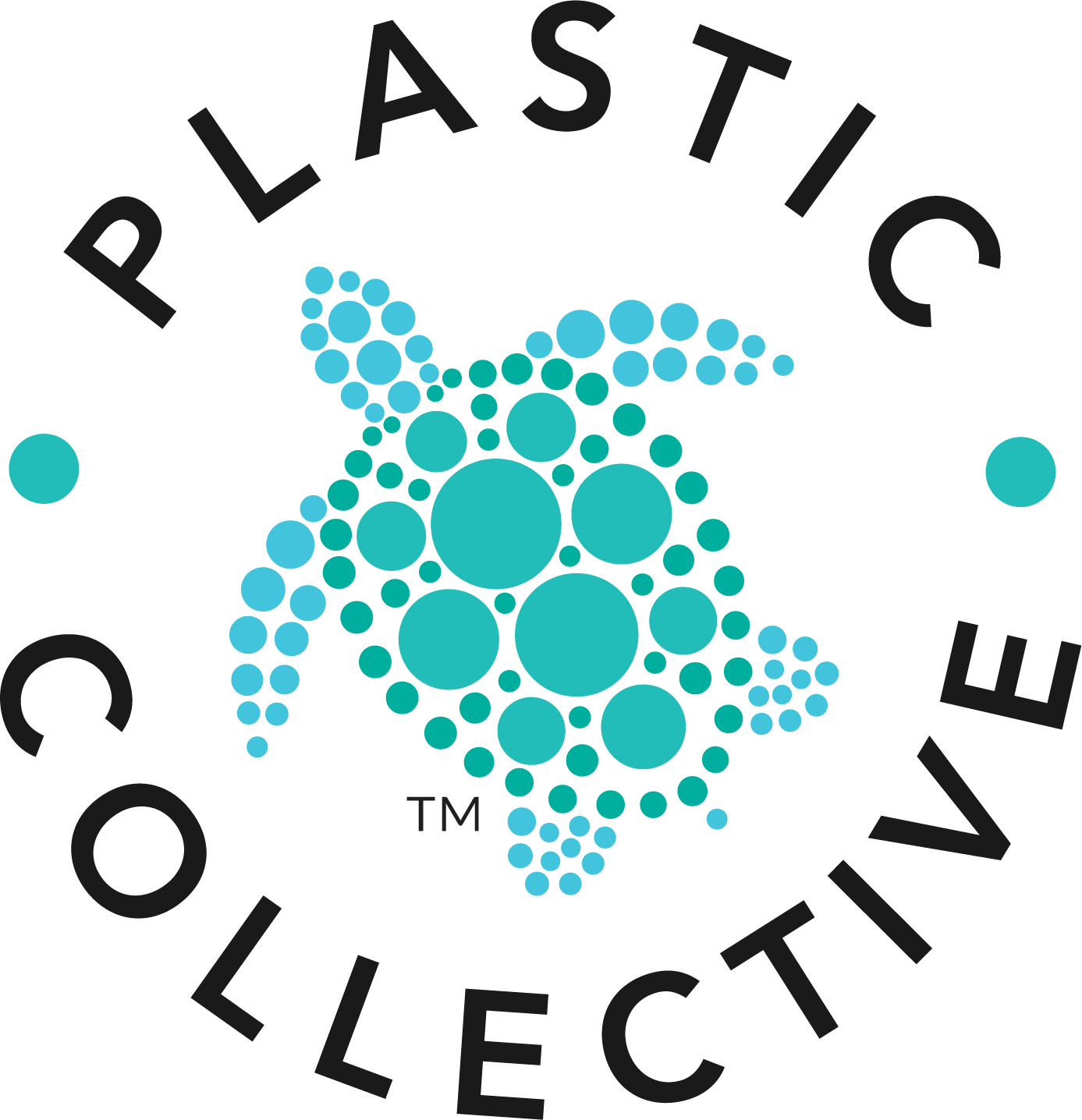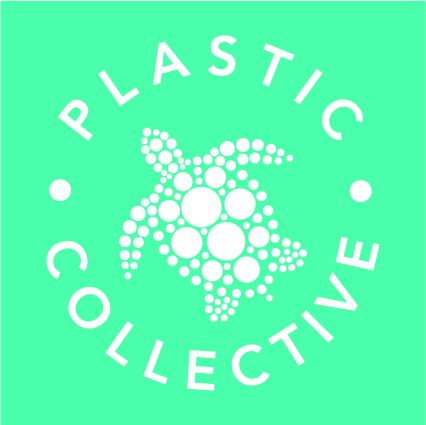The global food and beverage industry generates a staggering amount of plastic waste, significantly contributing to plastic pollution and environmental degradation. Over 380 million tons of plastic are produced globally each year, with plastic packaging alone accounting for 36% of this total. Tragically, only 9% of plastic waste has ever been successfully recycled, leaving billions of tons to pollute our oceans, ecosystems, and communities.
As single-use plastics flood landfills and waterways, consumers are demanding sustainable practices from brands. This presents a unique opportunity for the industry to lead the way in tackling plastic pollution.
Here’s how your food and beverage brand can act now to reduce its plastic footprint and build a future centered on sustainability.
1. Rethink Packaging Materials
The most obvious step toward reducing plastic waste is using eco-friendly alternative materials. Today, single-use plastics dominate food packaging, but brands can pivot to solutions that significantly reduce their environmental footprint:
- Adopting Renewable Materials: Replace single-use plastics with materials like glass, aluminum, or compostable bioplastics to become plastic-free . These options are widely recyclable and reduce reliance on virgin plastic.
- Investing in Compostable Solutions: Emerging innovations in plant-based plastics and compostable packaging degrade naturally, minimising long-term pollution.
- Lightweighting: Designing packaging that uses fewer materials while maintaining durability reduces both plastic production and emissions from transportation.
However, this is a long-term strategy that may not be feasible for all brands due to supply chain complexities and challenges with transporting perishable goods. For brands seeking immediate impact, offsetting their plastic usage is a scalable, impactful alternative.
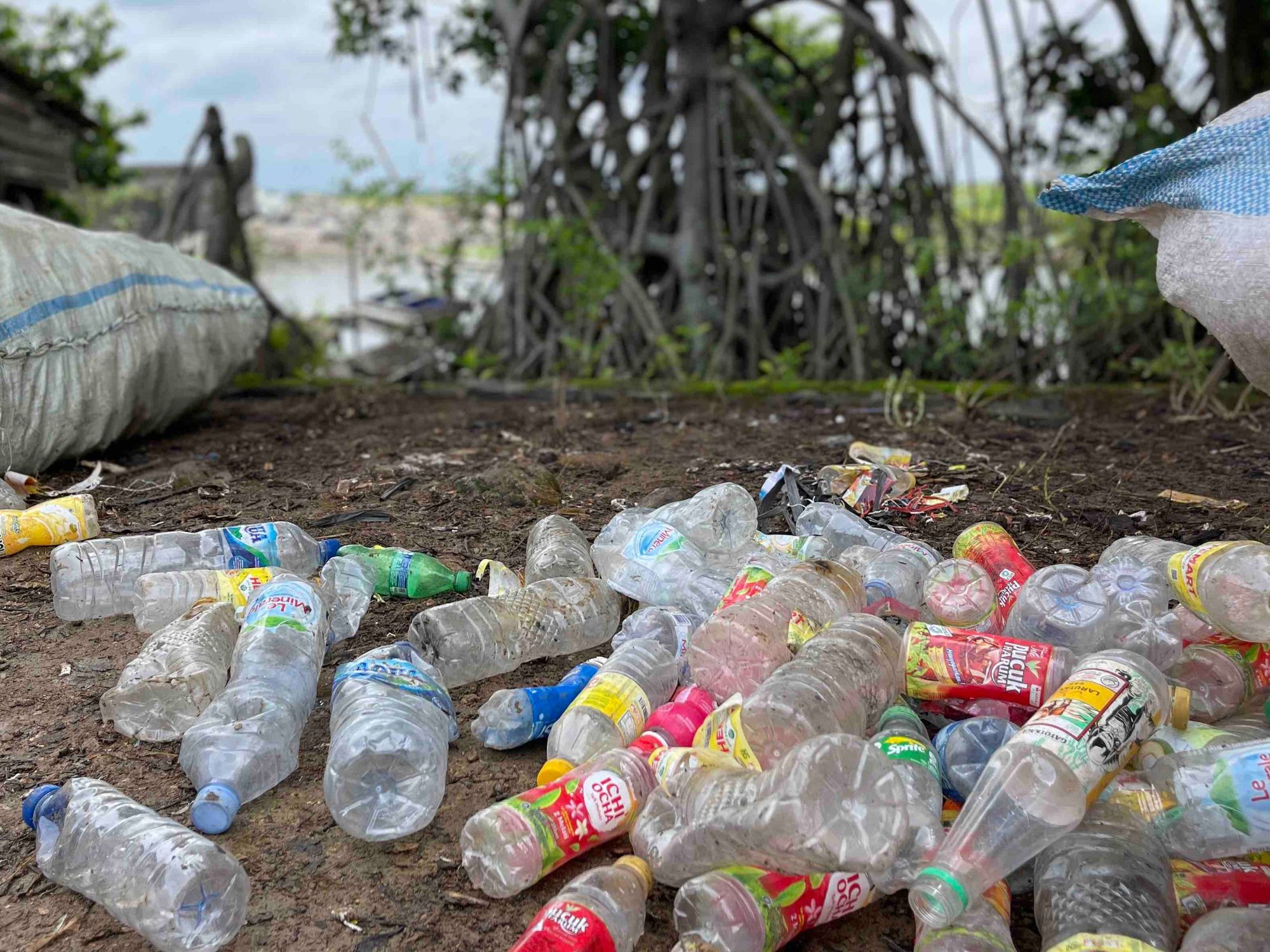
2. Focus on Reusable and Refillable Systems
A growing circular economy is enabling brands to transition toward reusable packaging models:
Refill Stations: Implement in-store or home delivery systems where customers can refill containers, reducing reliance on new packaging.
Deposit Schemes: Encourage customers to return plastic bottles or containers for reuse or recycling, prolonging their lifecycle and reducing waste.
Such systems align with consumers’ increasing demand for sustainable packaging and can reduce plastic waste significantly.
3. Offset Plastic Impact Through Verified Projects
Transitioning away from plastic entirely may take time, but brands can act now by offsetting their plastic footprint. At Plastic Collective, we partner with food and beverage companies and other business sectors to offset their plastic use through our Verra certified projects in Indonesia and Ghana.
Our initiatives address plastic pollution at the source, removing plastic items from communities, waterways, and oceans. Additionally, these programs empower vulnerable local waste pickers by providing education, health and safety, and a fair and stable job income.
Here’s the rewritten case study paragraph for Soulfresh, incorporating the details provided:
Case Study: Soulfresh
Soulfresh, the company behind the innovative Lo Bros beverages, partnered with Plastic Collective to offset their plastic footprint and champion sustainability. By funding plastic recovery initiatives through our SEArcular by Greencore project in Java, Indonesia, Soulfresh achieved 100% Net Plastic Collected badge, ensuring the equivalent of their total plastic footprint was removed from the environment.
This partnership has led to the recovery of over 25.7 tons of plastic waste, helping to prevent plastic from entering vulnerable ecosystems. Additionally, the initiative supported local communities by providing waste pickers with fair wages, safer working conditions, and access to training programs. Through this partnership, soulfresh reinforced its commitment to sustainability, resonating with conscious consumers who value eco-friendly practices.
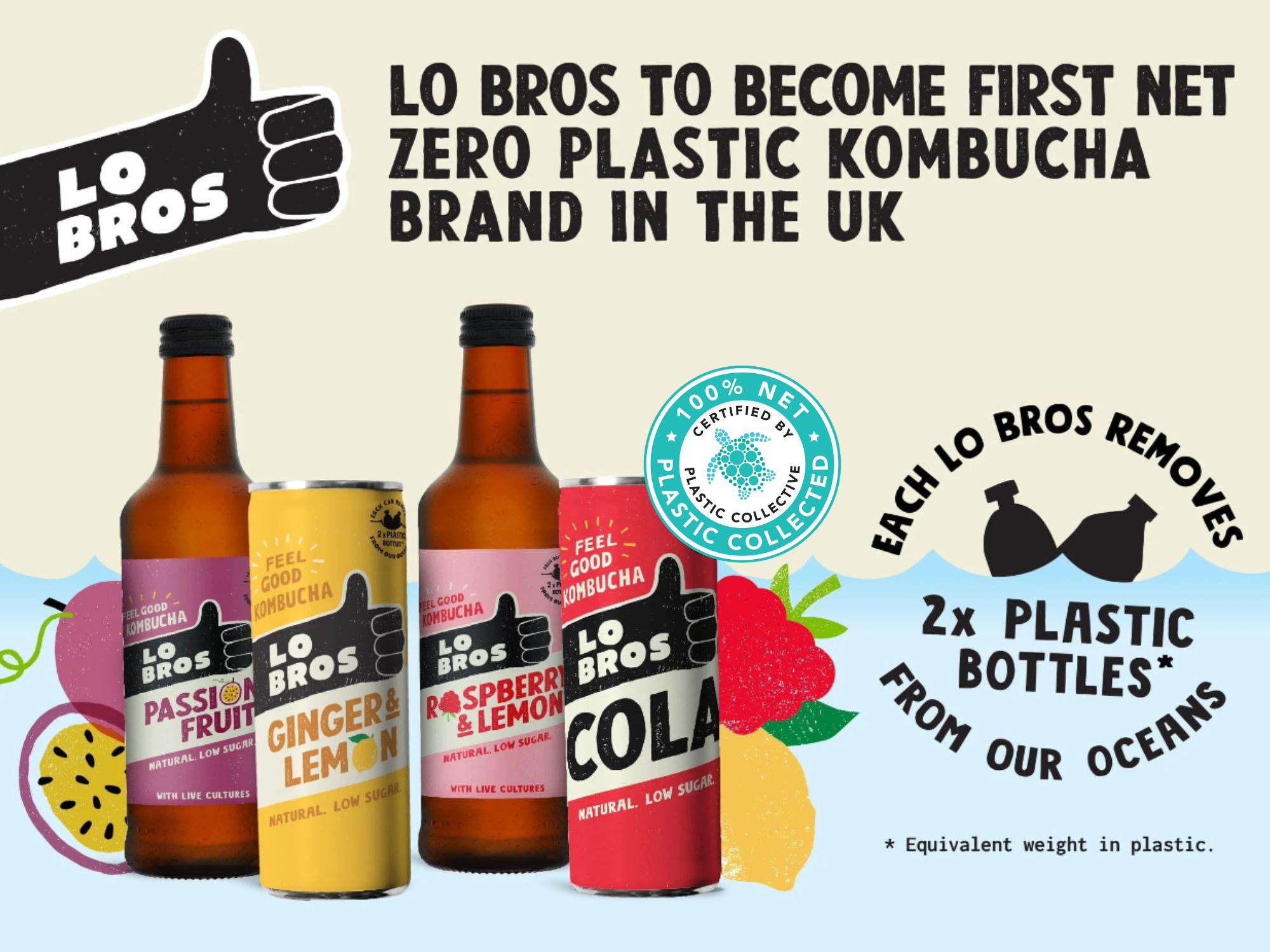
4. Build Circular Economy Solutions
To create long-term change, food and beverage brands must ideally embrace circular economy principles, where materials are reused and waste is minimised:
Recycled Plastic and Initiatives: Collaborate with Plastic collective to ensure materials like plastic bottles and plastic bags are recovered and reused.
Innovative Upcycling: Partner with organisations that transform recovered materials into new packaging materials or products, reducing dependency on virgin plastic.
Closed-Loop Systems: Design sustainable packaging that can be returned, recycled, or reused multiple times, minimising waste.
A circular approach has been shown to minimise waste, lower costs and cut packaging waste, while significantly reducing carbon emissions across the supply chain.
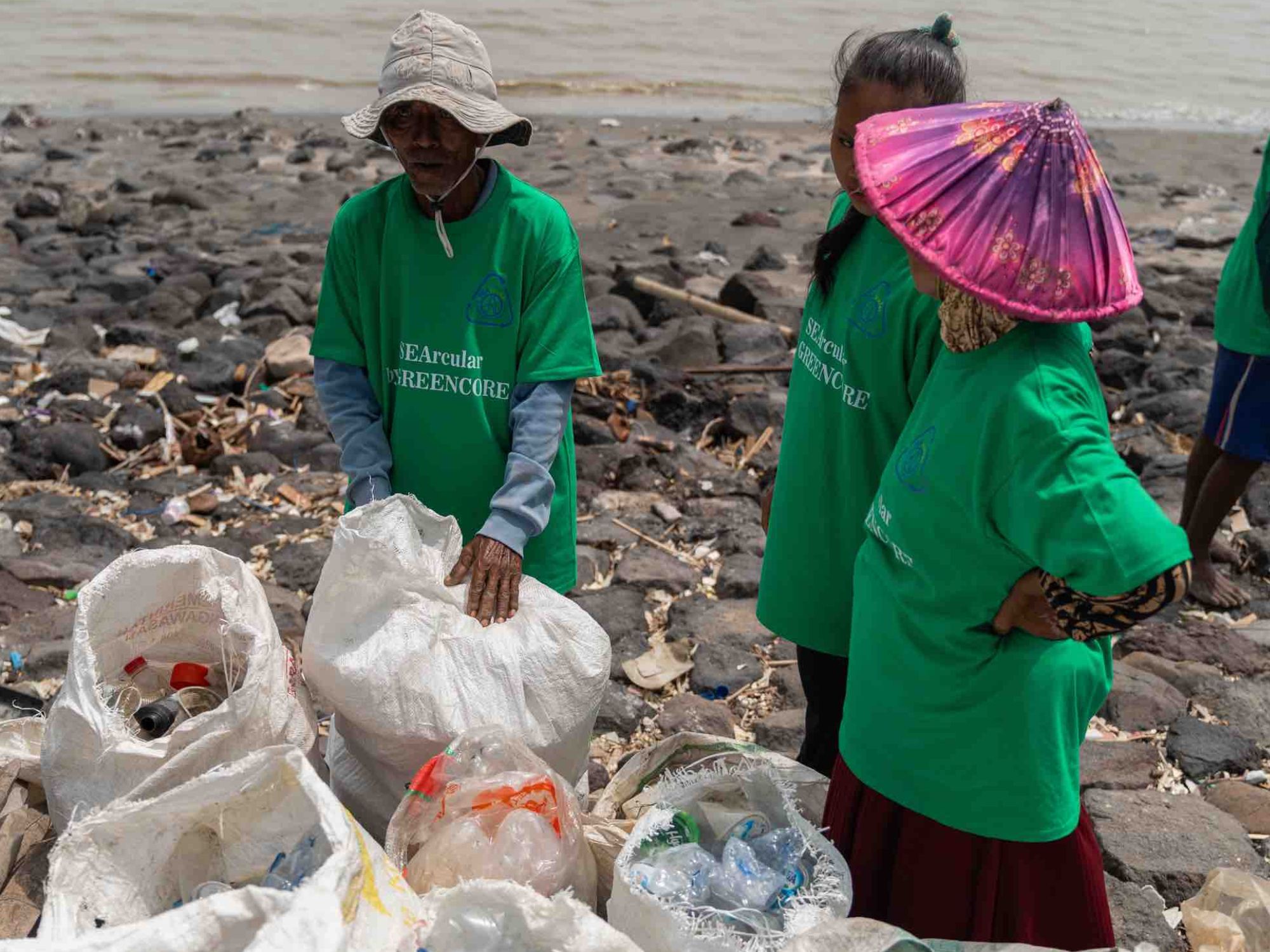
5. Measure and Act with Numbers
Understanding your brand’s use of plastic through a plastic footprint is essential for driving measurable change. At Plastic Collective, we simplify this process through our Plastic Impact Plan Generator.
A detailed plastic impact plan helps brands:
- Audit their plastic production and usage across the supply chain.
- Set tangible reduction targets such as reducing virgin plastic use by 50% within five years.
- Offset unavoidable plastic waste through Plastic Collectives verified recovery and recycling projects.
- Generating a free Plastic Impact Plan takes just five minutes.
Click here to get started today.
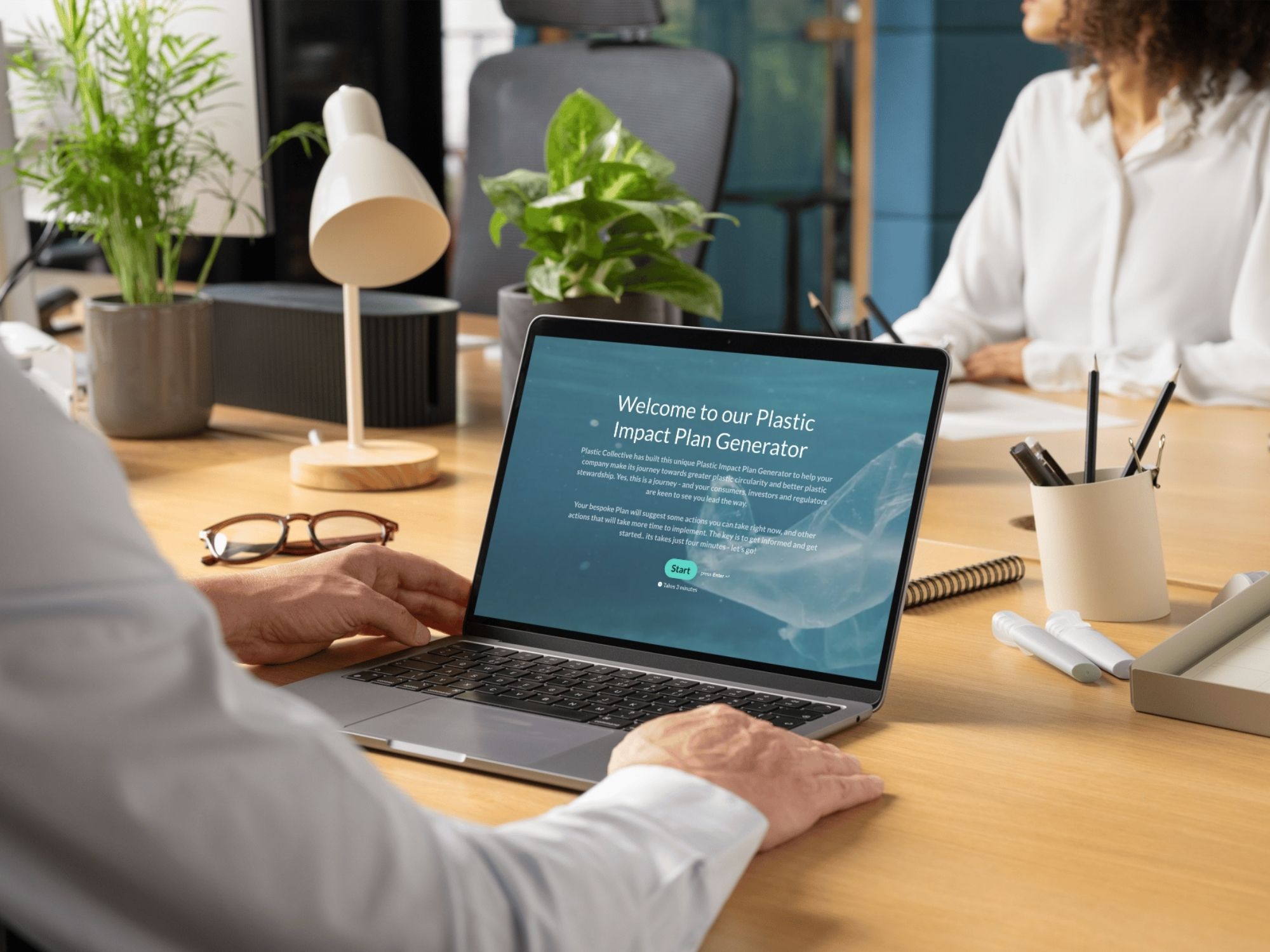
Why Act Now?
The consequences of inaction are monumental. Plastic pollution harms ecosystems, tarnishes brand reputation and threatens human health, and worsens climate change. Microplastics have been found in air, water, and even food, with devastating effects on wildlife and humans alike.
Today, 64% of consumers rank sustainability as their top purchasing consideration. Brands that prioritise sustainable practices not only protect the planet but also gain a competitive edge.
Your brand has the power to be a force for good. By reducing plastic production, embracing reusable systems, offsetting your plastic footprint, and committing to measurable goals, you can protect the planet for future generations while resonating with environmentally conscious consumers.
Ready to Start Your Sustainability Journey?
At Plastic Collective, we specialise in helping brands reduce and offset their plastic waste. Through innovative waste management initiatives and community-driven clean-up projects, we make sustainability achievable and impactful.
Take the first step today, generate your free Plastic Impact Plan or make an enquiry to learn how your food and beverage brand can make an immediate and lasting impact. Together, let’s turn the tide on plastic pollution.
